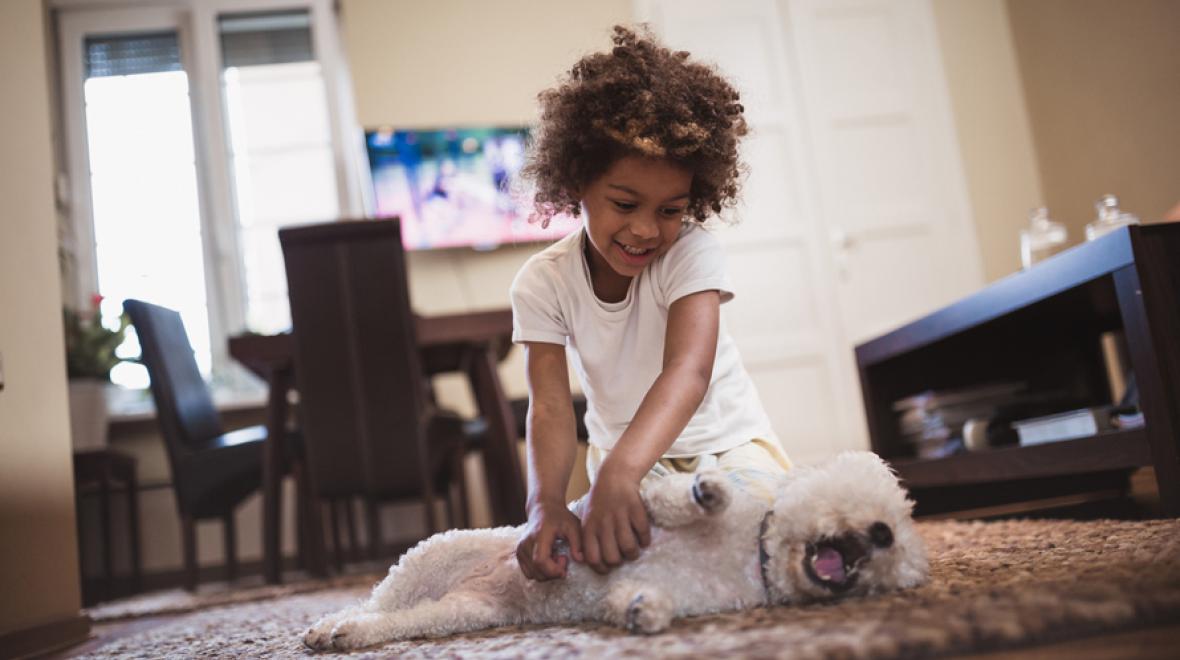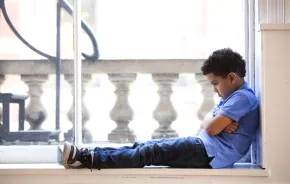
At some point in time, every parent must deal with a bored kid. It’s a hard situation to get around, especially as it’s always assumed that parents are somehow “guilty” of failing to entertain our kids and must, therefore, respond solicitously to every “I’m bored!” complaint.
Bored kids are a real bore, and they express their boredom in different ways, ranging from restlessness, hyperactivity, clinginess and whining behaviors to avoiding situations (examples: homework, school activities) or people they associate with boredom. But there’s good news: Letting children wallow in boredom can help them foster creativity and autonomy.
Increasing evidence suggests that the more children are left alone, the more they learn to make their own decisions; and, furthermore, parents’ consistent interventions to alleviate their children’s boredom could be doing more harm than good.
The downside of letting your child get bored is that boredom can lead to frustration. Brock University professor Lauren McNamara, something of a boredom expert, says that rather than being left alone in a state of boredom, children need some sort of structure and ration of organized activities to best navigate unstructured time — without which frustration may increase. More simply stated, children require guidance, role models and activities that help structure unstructured time.
Message received: We can’t just let our kids get bored — we must provide some form of structure to help them fall in love with boredom. But how, exactly, do we go about that?
Allow me to suggest two strategies that can help you transform your kid’s boredom into moments and habits of creative self-sufficiency.
Encouraging your child to make the most of boredom means providing him with the right environment where he can engage in unstructured play.
Embrace constructive boredom
The first thing you need to remember (I say remember because you already know!) is that your kid’s boredom has nothing to do with having nothing to do. As the saying goes, boredom is simply a lack of imagination. So how do you turn your child’s lack of imagination into a moment of creative freedom and departure?
Encouraging your child to make the most of boredom means providing him with the right environment where he can engage in unstructured play. It means providing him with the resources he needs to imagine, think, make decisions, experiment or simply observe the world around him.
An easy way to do this is to play the brainstorm game with your kid. Come up with all the activities he can do, would love to do, or has an interest in, and print them out. Visual cards work especially well with kids, so try to find images that correspond to the ideas you come up with together. Remember to focus on the activities that require minimal intervention from an adult. Put the cards where your child can reach them and refer him to the cards any time he claims to be bored. Adding activity books or printouts of experiments and projects he can attempt could also help spark his creativity.
“Play planning” is also a great strategy to help your child kill boredom. It involves asking him to pick out several activities he would like to do during the day ahead and then referring him back to those choices when he claims to be bored. This can also be done on the eve of the day in question; this can give you time to plan and ensure that he has the tools and environment he needs when boredom inevitably strikes.
Kids are notorious for jumping from one activity to another at a frightening speed. Setting a fixed time for each activity can help them stick to one thing for more than a few minutes. One trick that appears to work more often than not is setting an alarm clock and letting them turn it off.
The fewer the toys, the better
Access to an overabundance of toys does not reduce your child’s boredom. A glut of toy options stifles her creativity and increases her need for external stimulation, and there’s abundant evidence to prove that. A daycare center in Germany made the bet that taking away all the toys in the center would help children learn important social skills, such as creativity and critical thinking. The daycare staff was advised to ignore all complaints of boredom. The experiment, which lasted three months, yielded an interesting result: When children were left with only the bare necessities, they found creative ways to spend their time. They engaged in roleplaying, constructed objects using sticks collected in the woods, learned to play together, and seemed more confident in their abilities than before.
While it hardly seems necessary to reproduce this experiment at home, metering your kid’s volume of and access to toys can help reduce boredom and spark creativity. But there are several things to keep in mind:
- Don’t get rid of your kid’s toys alone. Let her participate in selecting the toys she wants to keep and those she’s willing to let go.
- Expect resistance. Letting go of things we love is never easy. Explaining where the discarded toys will go (for example, if you’re donating them to other children in need) can help her come to terms with the decision. You can also rotate the toys to ensure that she gets a chance to play with all of them.
- Ditch your own unused toys. Okay, we don’t refer to our stuff as toys, but the objects and gadgets we amass are equivalent to our kids’ toys. Let your child see you jettison stuff you no longer use or need.
- Replace toys with creative alternatives. Where does creativity come from? Encourage curiosity and model the scientific method, i.e. how to test an inspiring idea through experimentation and any failures to ultimate discovery. Provide your kid with a small box filled with recycled materials — empty toothpaste tubes, milk and cereal boxes, bottle tops, newspapers and magazines, corks, pieces of thread, buttons, glue, etc., and see what she’ll come up with.
Do these options mean that the “I’m bored” claims will be put to rest? Not a chance. But they will help your child understand that he, not you, is responsible for dealing with his boredom.
Editor’s note: This article was originally published in October 2019, and updated in September 2020.











